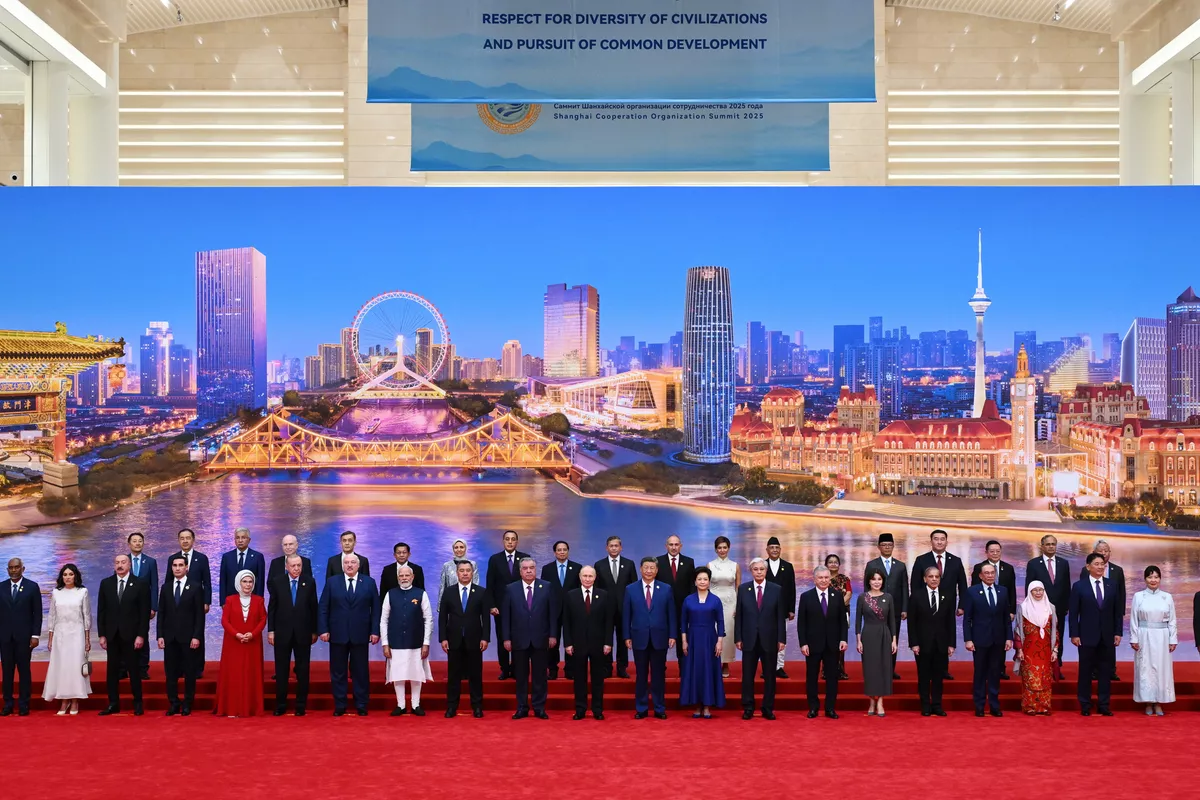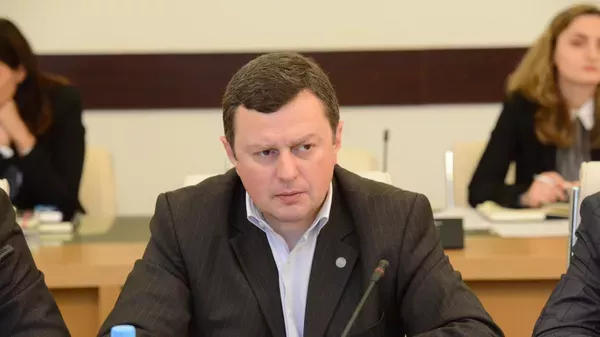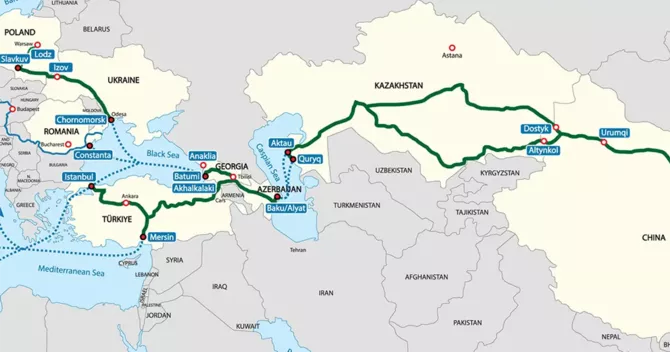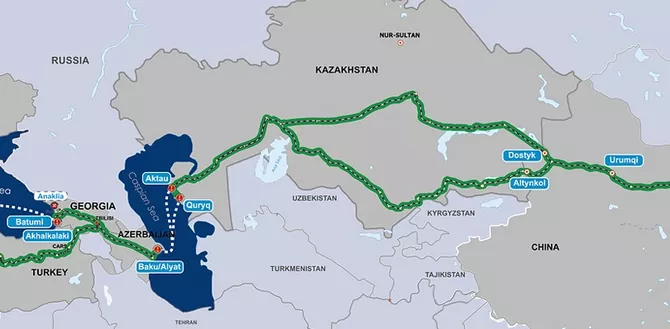
photo: wikipedia.org
The Shanghai Cooperation Organization (SCO) summit has concluded in Tianjin, with many analysts already calling it the largest and most significant in the organization’s history. Its outcomes go far beyond the internal agendas of the member states, signaling the emergence of a new Eurasian security architecture and the strengthening of alternative power centers that challenge the Western-dominated order. For the countries of the South Caucasus, located at the crossroads of key transport and energy routes, these developments take on exceptional importance.
To understand how the summit’s results are perceived in Tbilisi, what opportunities lie ahead for the South Caucasus, and how Georgia is seeking to transform its transit advantages into lasting strategic influence, we spoke with renowned expert and political analyst Dmitry Lortkipanidze.

Political analyst Dmitry Lortkipanidze
- How do you assess the significance of the SCO summit in Tianjin for the regional security architecture and the interests of South Caucasus countries, including Georgia?
- The SCO summit in China vividly demonstrates how relevant and viable the strategic vision proposed by Yevgeny Primakov back in the late 1990s has become. His “Russia-India-China” doctrine was conceived as an alternative to a unipolar world and an attempt to create the core of multipolarity. Today, this idea has found institutional embodiment within the SCO: the RIC triangle has evolved into the foundation of the organization, around which new alliances are forming and a space of Eurasian cooperation is taking shape. What was once a theoretical concept has now become a practical political reality, shaping the contours of the 21st-century global architecture.
In today’s world, where the global security system has shifted format and international law has largely lost its binding power, Georgia can no longer afford the luxury of political illusions. The time has come for cold, calculated strategy and pragmatic thinking. The country’s future depends on whether we can define our own national interest and transform it into tangible policy.
The key signal from the summit is that China is using the SCO as a platform to cement “multipolarity” and establish alternative rules of the game - with a very broad set of leaders, including India, Russia, Türkiye, and Iran. For the South Caucasus, this means an increased weight for eastern-oriented routes in security and logistics. While the SCO does not provide Georgia with direct security guarantees, as the country is outside its formal structure, it exerts an indirect influence through transport flows, energy pricing, and the political dynamics shaping its neighbors.
- The meeting between the presidents of Azerbaijan and Türkiye highlighted their strategic alliance and ongoing projects for transport and energy integration. How is this perceived in Georgia, which is also part of the Middle Corridor?
- In Tbilisi, the current situation is seen with a mix of optimism and caution - as both an opportunity and a strategic challenge. The opportunity lies in the strengthening and consolidation of the Middle Corridor, which promises Georgia a significant increase in transit flows. This means new cargo volumes, higher tariff revenues, revitalization of port infrastructure and railways, and a stronger role for the country as a logistics hub between Europe and Asia.

photo: RUSI
The challenge, however, lies in ensuring that Georgia does not lose its independent voice amid the active Türkiye-Azerbaijan agenda. It is critically important for Tbilisi to maintain its autonomy at the negotiation table - whether the discussions involve tariff policies, port development, or expanding railway throughput. In essence, Georgia faces a clear dilemma: to transform its transit advantage into a sustainable lever of influence without allowing its value to be diluted by its more powerful neighbors.
- At the same time, the summit also featured a dialogue between Ilham Aliyev and Nikol Pashinyan. What signal does this send to the region, and how does it shape Tbilisi’s perception of prospects for Armenia-Azerbaijan peace?
- The very fact that the meeting took place can be interpreted as a cautious signal of positive movement in perceptions of “post-2023 peace.” However, the content of the discussions shows that the political landscape remains deeply contradictory. Even terminology itself - whether “Zangezur Corridor” or the hypothetical “Trump Route” - becomes a battleground for interpretations and legitimacy. In this context, every word and every route acquires symbolic weight, becoming not merely geography but a reflection of competing strategic visions.
For Tbilisi, this dynamic is read differently - not as a dead end but as an opening window of opportunity. The emphasis here is on the idea that contested terms and undefined frameworks can serve as starting points for pragmatic agreements on connectivity. In this “window,” Georgia sees a chance to turn tensions into new formats of cooperation: transport lines, energy hubs, and logistics networks. In other words, contradiction is not viewed as a threat but as a space for negotiating mutually acceptable solutions.
- How does Georgia view Türkiye’s role as a stabilizing actor in the region, especially given the expanding influence of Azerbaijan and Türkiye through joint projects such as railways and energy infrastructure?
- For Georgia, Türkiye is a crucial economic and transit partner and, in practice, the guarantor of connectivity to EU and Mediterranean markets. The expansion of joint Türkiye-Azerbaijan projects is seen as enhancing the predictability of logistics. At the same time, it creates a deep dependence on a single vector, making it essential for Georgia to diversify its capabilities - including ports, railways, and customs infrastructure.
Reports indicate that India blocked Azerbaijan’s accession to the SCO, largely due to the factor of Pakistan. For Georgia, this is not necessarily a negative development but rather an element of diversification. New Delhi is interested in alternative Eurasian trade chains - such as the India-Middle East-Europe corridor - which, in theory, could include Georgian infrastructure as part of bypass routes. However, the practical impact is more indirect, reflecting the balance of power in Asia rather than the immediate realities of Georgia’s transit corridors.

photo: Eurasianet
- The Middle Corridor, in which Georgia plays a key transit role, is increasingly being viewed as an alternative to older routes. Do you agree that this is an opportunity for Georgia to strengthen its strategic significance?
- The data from the past two years, 2024-2025, point to an unprecedented surge in trans-Caspian transit, and Georgia has emerged as one of the key beneficiaries of this process. As cargo flows grow, so does Georgia’s geo-economic importance, with the country becoming a vital node on Eurasia’s transport map.
However, transforming the current boom into a lasting strategic advantage requires solving a series of critical challenges - the very “bottlenecks” currently limiting its potential:
Railway network: The capacity of Georgia’s railways remains limited, hindering large-scale redistribution of cargo. Without infrastructure modernization, growth could stall.
Ports and terminals: The urgent need remains for the construction and launch of a deep-water port capable of handling large-tonnage vessels, ensuring full integration into global maritime trade routes.
Customs and digital procedures: Harmonizing regulations and implementing unified electronic systems along the corridor would speed up cargo turnover, reducing time and costs at borders.
Caspian fleet: The stability of the corridor depends heavily on having a sufficient number of ships and reliable logistics for the waterborne section of the route.
Only by overcoming these constraints can Georgia move beyond being merely a transit hub to becoming a full-fledged strategic center - a place where a new architecture of trade between East and West is actively shaped.
Share on social media